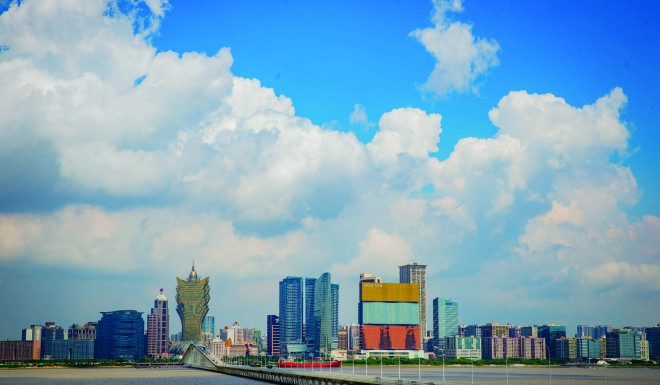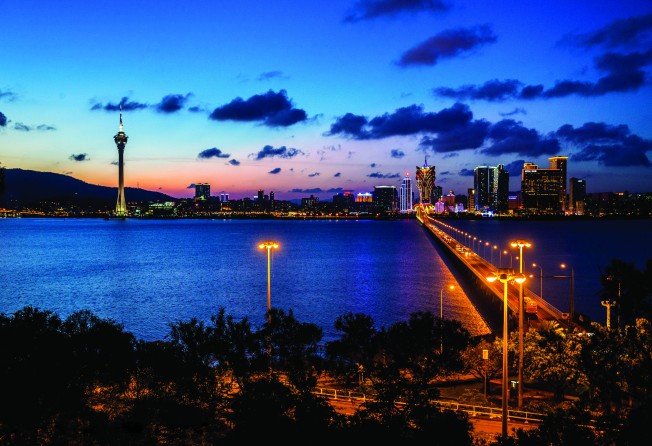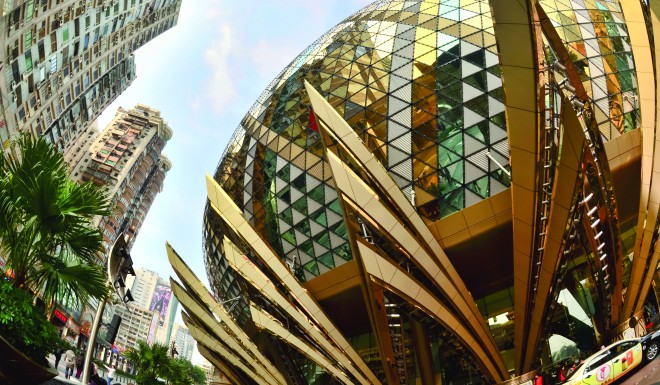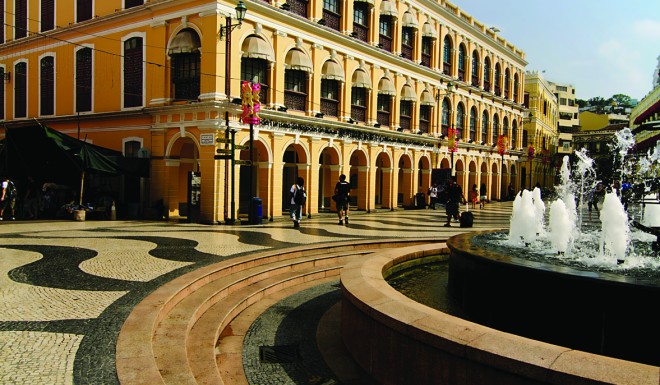
Behind the facade: Macau through the eyes of its residents
Opinions vary whether the waves of change which have swept over Macau since the handover have been beneficial or detrimental for its residents

Leaving aside its former status as a colony and morphing into a new role as the entertainment capital of Asia, Macau is a playground for opportunists who would risk it all for a taste of utopia.
As the hands of time turns, it consigns fragments of the old Macau to the history books. Swept along by waves of change, some local residents hold onto home soil while others leave. What do Macanese think of all these changes? Is Macau still the promised land?
After centuries of colonial history under Portuguese sovereignty, there is an intrinsic link between Portuguese and Macanese. Brought to Macau by a career in the media, native Portuguese Maria Garrido Pires found herself attracted to the city’s oriental culture. “I felt a kind of connection, spiritual connection, with the oriental culture,” she says.
Garrido Pires’ imagination as a child was fed by stories about Portugal’s faraway enclave in the east. “Macau would probably have been a better place, more developed than Portugal at the time,” she asserts.
Her aspirations were fuelled by a country in the grip of António de Oliveira Salazar’s authoritarian rule which inhibited development and forced many Portuguese to move to their colonies for a better life. “They are [concerned] about the crisis in Europe, people are betting on former colonies or other countries outside Europe … I believe that Portuguese people are returning to Macau again,” Garrido Pires adds.

Mainland Chinese were also fascinated by prospects of a better life in Macau. Immigrants flocked to the colony whenever mainland China was in turmoil, from the Sino-Japanese war to the cultural revolution and other upheavals. Tang Wing-yin was one of them. She was married to a Macanese and moved from Guangzhou to Macau in 1989 when the student movement was at its peak.
In the past two decades, she has run her own stall at Complexo Municipal de S. Domingos. Despite enjoying a good standard of living in Guangzhou, she cherishes the freedoms Macau has to offer, such as the freedom to choose one’s job, as opposed to the state allocation mechanism in mainland China which impeded one’s ambition.
Macau was a foreign-trade port long ago. In the early days, the fishing industry and transit trade, joss sticks, matches and firecrackers were the lifeblood of local manufacturing in Macau - until its position as a transit port was overtaken by Hong Kong.
By the 1970s, Macau enjoyed an economic boom marked by the burgeoning textile, travel and entertainment, and construction industries. “When I first arrived in Macau, life here was much more difficult than expected due to a slack economy,” Tang says. “That said, Macau was a simple and honest society back then, with most of the working population engaged in textile manufacturing industry. Now, the flourishing gaming industry offers more job opportunities."
Apart from the changing environment, people here are worried by deep-seated livelihood issues
Fortunately, Macau’s eclectic stance remains unchanged in the face of foreign trade, and cultural and religious imports. Macau owes its inclusive atmosphere to a long-standing open-door policy.
Tina Wong, managing director of Allway Advertising and Performing Arts Production, is the fourth generation of native Macanese to have lived in the city. She remembers when Macau was an affectionate place. While its development was less advanced than many counterparts, life was smooth and the people friendly. The only setback was safety. The streets were so dangerous that “my parents forbade me to go out alone”, Wong recalls.
Macau returned to China in 1999 as part of the “one country, two system” policy. In time it has crafted an international gaming capital out of a tiny fishing village. In the article entitled 《談「不願面對的真相」與澳門博彩業》(On The Inconvenient Truth and the Gaming Industry in Macau), Dr Fok Kai-cheong, vice-president of Macau Millennium College, maintains that despite economic benefits, the partial liberalisation of Macau’s gaming industry has resulted in many drawbacks.
When deciding on an occupation, many young people prefer lucrative casino work, which has caused a shortage of human resources for most non-casino-related companies; the sheer scale of the gaming industry raised the pressure on small and medium-sized enterprises, rental and commodity inflation; and widened disparities between the rich and the poor.

People who call Macau home know all about the city’s transformation. “The most drastic changes come from the cityscape,” Tang says. “When I first arrived, there were scarcely any skyscrapers. Now, more and more casinos rise on the horizon.” Apart from the changing environment, people here are worried by deep-seated livelihood issues.
Wong observes that while the burgeoning gaming industry offers many job opportunities, there is little room for long-term sustainable growth, nor are there sufficient investment and diversification strategies in talent development. Fok shares similar insights in his article, describing highly educated gaming practitioners as a waste of talent which contributes to a shortage of non-gaming professionals in the working population.
More young people are rushing into the casino industry to fill the gap presented by a shortage of croupiers. Wong says the younger generation is more easily tempted by the easy money and luxurious lifestyles on offer, as shown by increasing numbers of luxury cars driven by young people.
“The new generation has become money-oriented. While more and more parents are in the gaming business, there is less time for family members to interact with and care about each other,” she says. “Instead, they use money or luxury goods to compensate for the lack of love.'
They use money or luxury goods to compensate for the lack of love
An influx of foreign capital led to rocketing property prices, as lots of money went into real estate. Not only ordinary people suffered, so did small and medium enterprises.
Fok argues that “the monopoly status of the gaming industry in the economy has stimulated increase in wage, inflation rate, raw material cost, store operation and rental cost, water and electricity cost, as well as human resource demand, thereby squeezing the development space of other industries. In fact, many local small and medium companies were forced out of business."
The Individual Visit Scheme was introduced to Macau in July 2003, allowing millions of mainlanders to visit the city on an individual capacity. The massive influx has bolstered the city’s tourism and gaming sectors but serving large amounts of mainland tourists has overloaded the stresses on a range of infrastructure services and triggered growing resentment among locals.
Wong says that while dining and entertainment options have increased since the handover, capacity on the roads has been overwhelmed by growing numbers of tourist coaches and casino shuttle buses. The problems caused by Macau’s limited facilities to serve the incoming mainland tourists are affecting people’s standard of living. “I won’t go to the overcrowded tourist attractions like the Ruins of St Paul and the Senado Square,” Wong says.
Garrido Pires shares that sentiment, saying: “Macau is always crowded. I am always late because of the large number of people on the streets, it’s almost impossible to walk. It bothers me a lot when I need to go to work.”
People have different thoughts in the face of change. “There are things that I like, others that I get a bit disappointed in,” Garrido Pires says. “But in a global way, I’m enjoying Macau a lot."
Tang also credits Macau for better welfare, health care and education than in mainland China. Tang is happy that the city offers her retirement protection and her children the opportunities to study abroad. She is happy to stay, although her children have chosen to go elsewhere. “I think I have gained a lot in Macau. I made a right decision to come here.”
